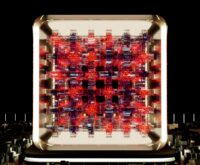The Robot Isn’t Coming for Your Job (But It Might Become Your New Intern)
Let’s get one thing straight. The conversation around AI and job displacement is a mess. It’s a chaotic whirlwind of panic-inducing headlines, utopian promises from tech CEOs, and a whole lot of confusion in the middle. You’ve seen the articles: “Will a Robot Take Your Job?” or “The End of Work as We Know It.” It’s enough to make anyone anxious about their future. But what’s really going on? Is it a full-blown apocalypse for the human worker, or is it something… different? The truth, as it so often is, is far more nuanced and, frankly, more interesting than the doomsday predictions.
We’re not talking about a simple swap—a human worker gets fired, and a shiny new robot takes their desk. That’s a cartoon version of reality. Instead, we’re looking at a fundamental shift in how we work, what skills are valued, and how we collaborate with technology. Think of it less like a hostile takeover and more like getting a super-powered, incredibly fast, and sometimes weirdly literal-minded intern who is going to change your entire workflow. This isn’t about replacement; it’s about redefinition.
Key Takeaways
- Task Automation, Not Job Obliteration: AI is far better at automating specific, repetitive tasks within a job rather than eliminating entire professions wholesale.
- The Skill Shift is Real: The demand for soft skills like critical thinking, emotional intelligence, and creativity is skyrocketing. Technical skills are still crucial, but they must be paired with human ingenuity.
- New Jobs Are Emerging: For every task AI automates, new roles are being created to manage, guide, and leverage the technology itself (think AI trainers, prompt engineers, and ethics officers).
- Adaptability is the New Job Security: Your long-term career safety doesn’t come from the job title you hold today, but from your willingness to continuously learn and adapt to new tools and processes.
The Elephant in the Room: Which Jobs Are Actually at Risk?
Okay, let’s not sugarcoat it. Some roles are more exposed to this shift than others. The common thread isn’t about “low-skill” vs. “high-skill” jobs—that’s an outdated way of looking at it. The real dividing line is between routine and non-routine tasks. If a significant part of your job can be broken down into a predictable, repeatable process, AI is probably going to have a say in it soon.
The Obvious Candidates: Routine and Repetitive Tasks
This is the low-hanging fruit for automation. For decades, we’ve seen machines take over manual, repetitive labor on assembly lines. AI is the white-collar equivalent of that shift. Think about jobs that involve a lot of data processing, sorting, and basic communication.
- Data Entry and Processing: An AI can read, sort, and enter data from thousands of documents in the time it takes a human to finish their first cup of coffee. It’s not a fair fight.
- Basic Customer Service: You’ve already experienced this. Chatbots can handle a massive volume of common queries—password resets, order tracking, basic product questions—instantly and 24/7. This frees up human agents for the complex, emotional, or high-stakes customer issues that require real empathy.
- Manufacturing and Logistics: Robots in warehouses that pick and pack orders are a prime example. AI-powered systems can optimize supply chains, predict maintenance needs, and manage inventory with a level of efficiency humans just can’t match.
For these roles, the change is undeniable. The focus must shift from performing the task to supervising the system that performs the task.

The Surprising Contenders: Creative and Analytical Roles
This is where the conversation got a lot more interesting in the last couple of years. We used to comfort ourselves by saying, “Oh, AI can’t be creative. It can’t write, or make art, or think critically.” Well. About that. Generative AI tools like ChatGPT and Midjourney have thrown a massive wrench in that assumption. Suddenly, roles we thought were safe are facing their own AI intern.
- Content Creation and Marketing: AI can now generate blog post outlines, social media captions, product descriptions, and email marketing copy in seconds. It can create stunning digital art from a simple text prompt. It’s not about replacing the marketing strategist, but the junior copywriter or graphic designer might find their daily tasks radically altered. Their new job isn’t just to write the copy, but to become a master of prompting the AI to generate the *best* copy, then editing and refining it with human nuance.
- Paralegal and Legal Research: Sifting through mountains of case law and legal documents to find relevant precedents is incredibly time-consuming. An AI can do it in a fraction of the time, identifying patterns and relevant information with superhuman speed. This doesn’t replace the lawyer who builds the case and argues in court, but it dramatically changes the work of the team supporting them.
- Coding and Software Development: AI assistants like GitHub Copilot can suggest lines of code, or even whole functions, as a developer types. This speeds up development, helps with debugging, and handles the boilerplate code, allowing the human developer to focus on higher-level architecture and problem-solving.
It’s Not All Doom and Gloom: The Rise of New Roles
History has shown us that technological revolutions are a story of transition, not termination. The invention of the automobile displaced blacksmiths and horse breeders, but it created vastly more jobs in manufacturing, road construction, gas stations, and the entire suburban economy. AI is no different. It’s a job-shuffling machine, and here’s a look at the new roles emerging from the deck.
The AI-Augmented Professional
This is perhaps the most common outcome. You don’t get replaced; you get a superpower. This is the “centaur” model, named after the mythical half-human, half-horse creature. The idea is that a human’s strategic mind paired with AI’s computational power can outperform either one alone. A doctor uses an AI to analyze medical scans for signs of cancer they might miss. A financial analyst uses an AI to sift through market data to spot trends. An architect uses an AI to generate hundreds of building design variations based on a set of constraints. The human is still in the driver’s seat, but they’re driving a much, much faster car.
The AI Gatekeepers and Trainers
AI isn’t magic; it’s a tool that needs to be built, maintained, and guided. This has created a whole new ecosystem of jobs that didn’t exist a decade ago.
- Prompt Engineers: The art and science of talking to an AI. These are the people who can craft the perfect text prompt to get the exact output they need from a generative AI, a skill that’s part-programmer, part-poet.
- AI Ethicists: As AI becomes more powerful, we need people asking the hard questions. Is this model biased? What are the societal implications of this algorithm? How do we ensure AI is used responsibly? This is a critical role for preventing unintended harm.
- Data Labelers and AI Trainers: AI models learn from data. Humans are still needed to label that data correctly (e.g., identifying objects in images to train a self-driving car) and to provide feedback to refine AI performance through processes like Reinforcement Learning from Human Feedback (RLHF).
The Human-Centric Roles
What’s the one thing AI is truly terrible at? Being human. It can’t replicate genuine empathy, build deep relationships, or provide nuanced emotional support. This means that jobs relying on these core human skills are not only safe but are likely to become even more valuable.
Think about therapists, nurses, elder care providers, career coaches, and great teachers. The core of their work is human connection. While AI can provide tools to help them (like managing administrative tasks), it can’t replace the fundamental service they provide. As the world gets more automated, the demand for a genuine human touch will only grow.

The Great Skill Shift: How to Future-Proof Your Career
So, the question isn’t “Will I have a job?” but “Will I have the right skills for the jobs that exist?” Future-proofing your career isn’t about predicting the perfect job title for 2035. It’s about building a foundation of durable skills that will be valuable no matter how the technology evolves.
“The illiterate of the 21st century will not be those who cannot read and write, but those who cannot learn, unlearn, and relearn.” – Alvin Toffler
This quote has never been more relevant. Your ability to adapt is your greatest asset. Here’s what to focus on:
- Critical Thinking and Problem-Solving: AI can give you answers, but it can’t tell you if you’re asking the right questions. The ability to analyze a problem from multiple angles, challenge assumptions, and devise a creative strategy is a uniquely human skill.
- Emotional Intelligence and Communication: Collaborating with a team, negotiating a deal, mentoring a colleague, understanding a client’s unspoken needs—these are all rooted in emotional intelligence. As routine tasks get automated, these high-touch skills become a key differentiator.
- Creativity and Innovation: This isn’t just about art. It’s about connecting disparate ideas, imagining what’s next, and thinking outside the box. AI can generate variations on what already exists, but true, groundbreaking innovation still comes from the human mind.
- Digital Literacy and AI Fluency: You don’t need to become a machine learning engineer, but you absolutely need to understand the basics of the tools you’re using. Learn how to use AI assistants, understand their limitations, and think about how they can be applied to improve your workflow. Treat it like learning to use Microsoft Excel 20 years ago—it’s becoming a basic competency.

The Bigger Picture: Societal and Economic Implications of AI and Job Displacement
This transformation goes beyond individual careers. It presents massive challenges and opportunities for society as a whole. On one hand, AI-driven productivity could lead to incredible economic growth and solve some of our biggest problems in medicine, climate change, and science. On the other hand, if not managed carefully, it could exacerbate wealth inequality, leaving behind those whose skills are most easily automated.
This is where conversations about policy come in. Governments, educational institutions, and businesses have a huge role to play. We need to rethink our education system to focus more on the durable skills mentioned above. We need to create more accessible pathways for mid-career workers to reskill and upskill. And we may need to explore more radical ideas like a stronger social safety net or even Universal Basic Income (UBI) to ensure that the benefits of this technological leap are shared broadly, not just concentrated at the top.
Conclusion
The narrative of AI and job displacement is not a simple story of humans versus machines. It’s a story of evolution. AI is a powerful, world-changing tool, but it’s still just a tool. It’s a lever that can amplify human intellect and creativity to unprecedented levels. Yes, it will automate tasks, and some jobs will disappear. But it will also create new opportunities we can’t even imagine yet and augment the roles we already have. The future doesn’t belong to the AI, nor does it belong to the people who resist it. It belongs to those who learn to collaborate with it—the ones who stay curious, flexible, and fundamentally human.
FAQ
Will AI take my specific job?
It’s highly unlikely that AI will eliminate your entire job overnight. It is, however, very likely that it will change it. The most constructive approach is to analyze the tasks you perform daily. Which ones are repetitive, data-driven, and predictable? Those are the tasks AI will likely assist with or automate first. Your goal should be to focus on mastering the strategic, creative, and interpersonal parts of your role, while learning how to use AI to handle the rest. It’s a shift from ‘doer’ to ‘manager and strategist’.
What is the single most important skill to learn for the AI era?
If you have to pick just one, it’s ‘learning agility’—the ability to learn, unlearn, and relearn quickly. The specific tech tools will change constantly. A hot AI platform today might be obsolete in three years. But the underlying skill of being able to pick up new technologies, adapt your workflow, and continuously update your knowledge is what will provide lasting career security. It’s a mindset, not a specific technical skill.
Is it too late for me to start learning about AI?
Absolutely not. In fact, now is the perfect time. The technology is just becoming accessible and user-friendly enough for non-technical people to experiment with. You don’t need to go get a Ph.D. in computer science. Start small. Play with free tools like ChatGPT or Microsoft’s Copilot. Watch a few high-quality YouTube videos explaining the basic concepts. Think about one small, annoying task in your job and see if an AI tool can help you do it faster. The journey starts with curiosity, not a coding boot camp.



 AI Tools for Freelancers: Work Smarter, Not Harder in 2024
AI Tools for Freelancers: Work Smarter, Not Harder in 2024  AI and Job Displacement: Your Guide to the Future of Work
AI and Job Displacement: Your Guide to the Future of Work  AI’s Impact: How It’s Transforming Industries Today
AI’s Impact: How It’s Transforming Industries Today  AI in Cybersecurity: The Future of Digital Defense is Here
AI in Cybersecurity: The Future of Digital Defense is Here  AI-Powered Marketing: The Ultimate Guide for Growth (2024)
AI-Powered Marketing: The Ultimate Guide for Growth (2024)  AI in Education: How It’s Shaping Future Learning
AI in Education: How It’s Shaping Future Learning  Backtest Crypto Trading Strategies: A Complete Guide
Backtest Crypto Trading Strategies: A Complete Guide  NFT Standards: A Cross-Chain Guide for Creators & Collectors
NFT Standards: A Cross-Chain Guide for Creators & Collectors  Decentralized Storage: IPFS & Arweave Explained Simply
Decentralized Storage: IPFS & Arweave Explained Simply  How to Calculate Cryptocurrency Taxes: A Simple Guide
How to Calculate Cryptocurrency Taxes: A Simple Guide  Your Guide to Music NFTs & Top Platforms for 2024
Your Guide to Music NFTs & Top Platforms for 2024  TradingView for Crypto: The Ultimate Trader’s Guide
TradingView for Crypto: The Ultimate Trader’s Guide